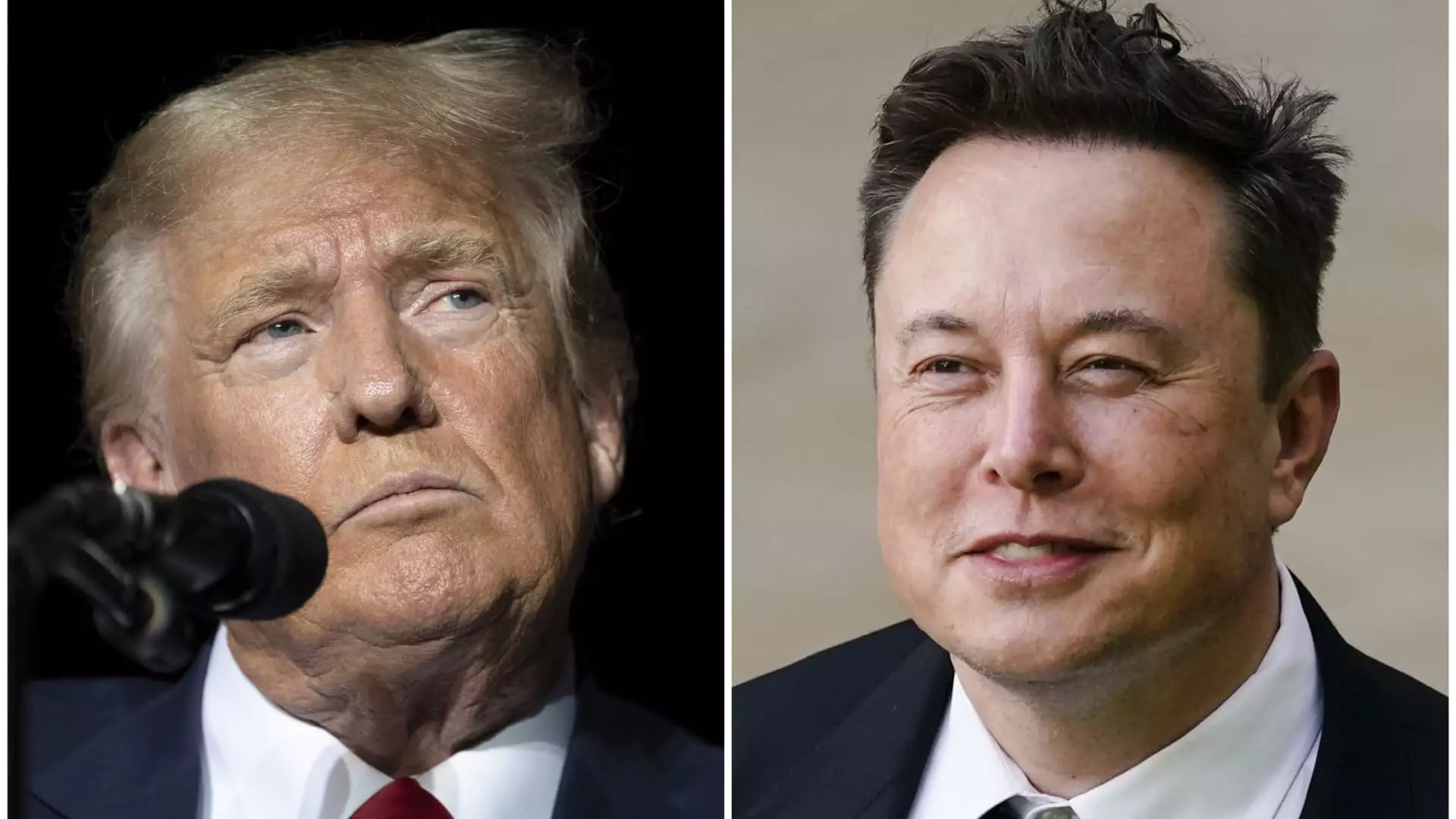In a rapidly evolving technological landscape, particularly within the realm of artificial intelligence (AI), the discussions surrounding investments and financial pledges from major players like OpenAI, Oracle, SoftBank, and influential figures such as Elon Musk have become increasingly contentious. An intriguing episode unfolded recently after President Donald Trump announced an ambitious AI infrastructure project termed the Stargate initiative, which promises a staggering investment of $500 billion and the creation of over 100,000 jobs. Musk’s reaction, however, raised eyebrows and ignited a dialogue about the credibility of this funding claim and the dynamics between tech moguls.
Elon Musk, known for his propensity to speak candidly on matters of technology and business, expressed skepticism regarding the financial backing necessary to support such a monumental venture as Stargate. He stated emphatically on social media that the involved companies lacked the requisite funds to fulfill their commitments. Musk asserted that SoftBank had less than $10 billion secured for this endeavor, which he claimed to have verified through reliable sources. This allegation casts a veil of doubt over a project that had been touted by the Trump administration as a transformative force for the American economy.
The skepticism surrounding the financial viability of the Stargate project resonates with broader questions about how feasible such gigantic investments in AI really are. While the tech sector is flush with capital in certain areas, assembling the necessary resources for large-scale initiatives often involves complexities related to liquidity, partnerships, and investor confidence. Ultimately, Musk’s assertions are pivotal as they challenge not only the credibility of the investors but also the strategic vision laid out by the government officials.
In the wake of Musk’s claims, Sam Altman, CEO of OpenAI, responded directly, noting his respect for Musk’s achievements while simultaneously rebutting the assertion regarding SoftBank’s liquidity. Altman urged Musk to prioritize national interests over personal or company-centric goals, aptly using a patriotic emoji to punctuate his point. This exchange illustrates not just a professional disagreement but highlights the underlying political tensions between Musk—who has deep financial ties to Trump—and Altman, who appears committed to a more collaborative industry approach.
The fact that Musk tends to maintain a contentious relationship with Altman, including past legal disputes and public disagreements, only serves to exacerbate the drama surrounding the Stargate project. The stakes aren’t merely financial; there are egos, reputations, and the potential future of the American AI landscape at play. With both men positioned at the forefront of this transformative technology, the ramifications of their friction could affect not only the success of their respective companies but also the advancement of AI in the United States.
Presidential backing for the Stargate initiative underscores a growing trend of intertwining government initiatives with technological advancements. Trump’s announcement, made in the presence of industry giants, emphasized a nationalistic approach that commits to building AI infrastructure domestically rather than ceding ground to competitors like China. The political landscape influences business decisions, and partnerships formed under government schemes can drastically shape the trajectory of technological innovation.
Moreover, the strategic collaborations indicated in the Stargate initiative—featuring entities such as Oracle, Microsoft, and SoftBank—signal a potential consolidation of power among key industry players. Such alliances might blur the lines between competition and collaboration, leading to concerns regarding monopolistic practices and innovation stagnation. In the wake of such projects, it is critical to monitor how these partnerships evolve and whether they foster healthy competition or stifle it.
As the discussion around Stargate continues to unfold, what remains clear is the weight of Musk’s statements and the political implications entwined within them. The rhetoric surrounding such high-stakes investments in AI reflects not just the ambitions of a few corporate leaders, but also poses significant questions about corporate governance, national policy, and the future landscape of technological innovation.
In the grand narrative of AI development, it will be imperative to maintain an acute awareness of the financial realities that govern such initiatives. In a world increasingly reliant on technology, the responsibility to ensure that these ventures are grounded in viable financial frameworks while upholding the integrity of entrepreneurship and innovation ultimately lies with both tech leaders and policymakers alike. The unfolding saga of Stargate epitomizes the complexities of balancing ambitious goals with the economic realities that underpin them.


Leave a Reply